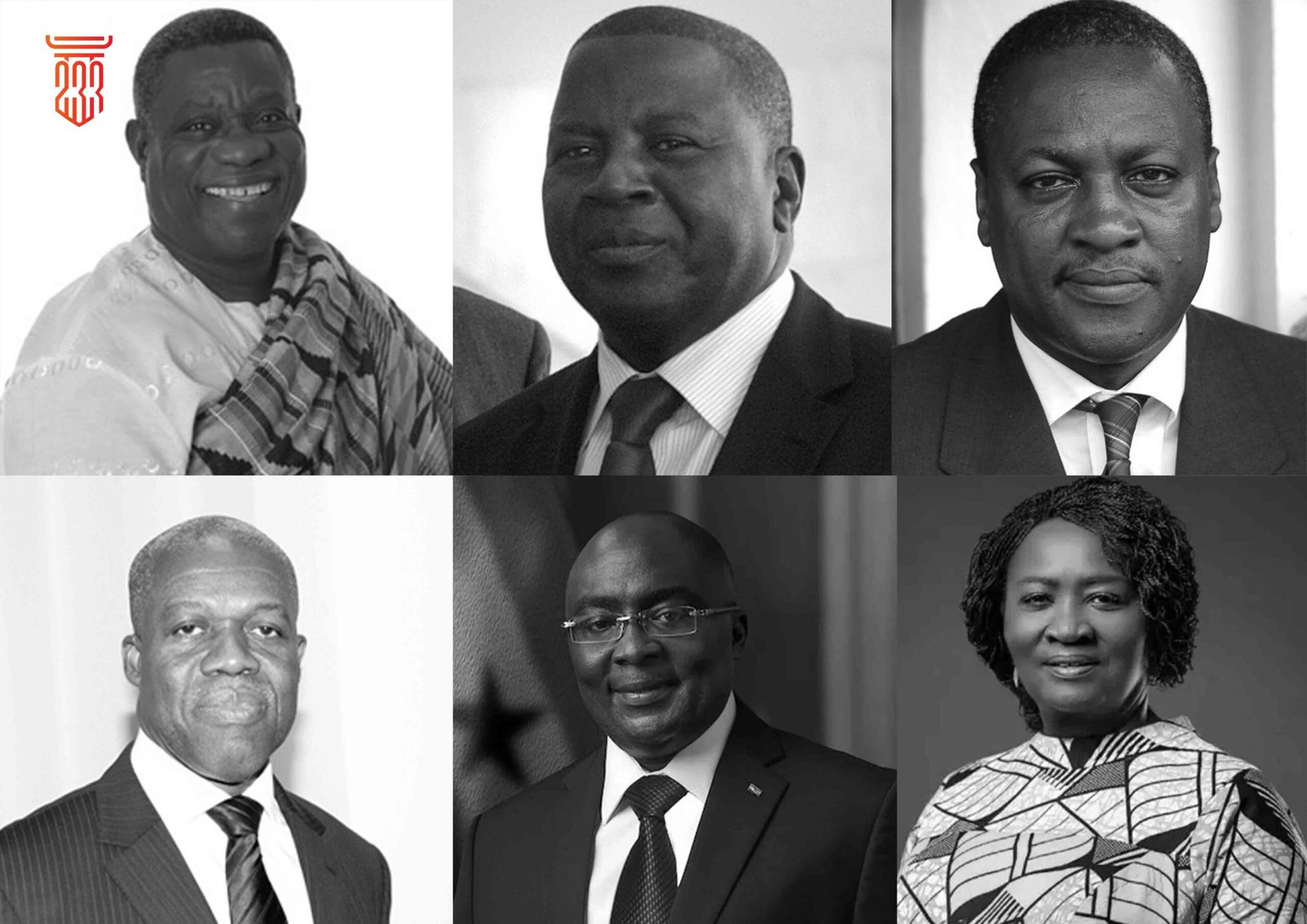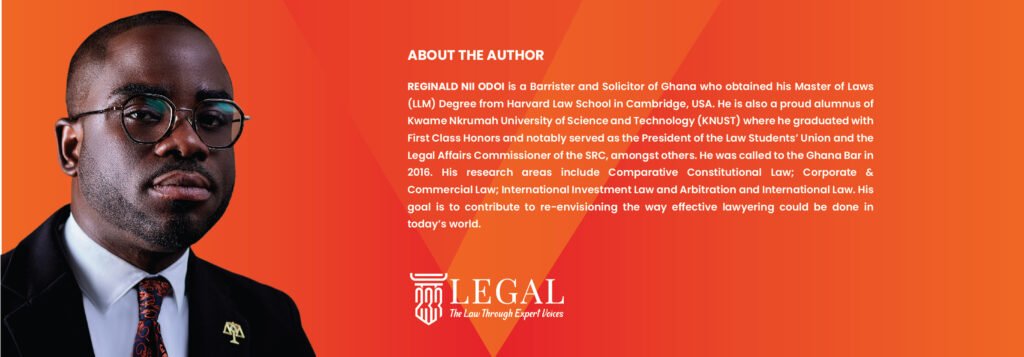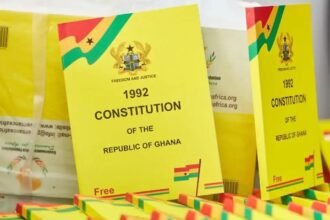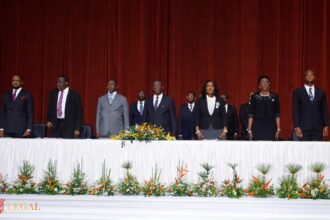

Introduction
I am Vice President. In this I am nothing, but I may be everything.
The Office of the Vice-President was created for the first time in the 1979 Constitution. This provision for the Office of the Vice-President was continued and repeated in the 1992 Constitution. Under the 1992 Constitution, the President of the Republic of Ghana is required to designate a candidate for the office of the Vice-President before the election of the President. A person designated for the office of the Vice-President must meet the qualification requirements applicable to the President. A candidate designated as Vice-President is deemed duly elected as Vice-President if the candidate who designated him as candidate for election to the office of the Vice-President has been duly elected President in accordance with the provisions of the Constitution. The constitution requires the Vice-President to take and subscribe the oath of allegiance and the Vice-Presidential oath before commencing to perform the functions of Vice-President.
Article 60 of the constitution provides for two (2) sets of functions for the Vice-President namely, functions assigned him or her under the constitution and those assigned by the President. The constitution provides that where the President is absent from Ghana or is for any other reason unable to perform the functions of his office, the Vice-President shall perform the functions of the President until the President returns or is able to perform his functions. The constitution, however, is silent on what should happen where the Vice-President is unable to perform the functions of that office due to death or some disability. This essay advocates for filling the void by making a much-needed proposal for constitutional reform on Vice-Presidential vacancies in Ghana.
Vacancy provisions under the 1992 Constitution that involves the Vice-President
As highlighted above, the constitution is silent on what should happen where the Vice-President is unable to perform the functions of that office due to death or some disability. The constitution, rather, caters for vacancies in two (2) situations that involve the office of the Vice-President. They include, firstly, succession to the presidency and secondly, filling of a vacancy after the Vice-President assumes the presidency. Regarding the first scenario, the constitution under Article 60(6) provides a situation where in the event of death, resignation or removal of the President, the Vice-President automatically becomes President for the remaining unexpired term. This automatic succession to the presidency takes effect from the date of the death, resignation or removal of the President. In such a situation, where the unexpired term served by the Vice-President exceeds half the term of a President, the Vice-President is subsequently only eligible to serve one full term as President. Before the Vice-President commences to perform the functions of the President under this scenario, the Vice-President is required to take and subscribe the oath of allegiance and the Presidential oath. Regarding the second scenario, the Vice-President under Article 60(10) is required to nominate a person to the office of the Vice-President upon assuming office as President but subject to approval by Parliament.
The lack of a provision in the constitution to deal with filling of a vacancy in the office of the Vice-President can lead to several challenges and legal implications. First, it creates a situation of constitutional ambiguity since the absence of a clear procedure for filing a vacancy can create uncertainty and confusion potentially leading to disputes and challenges. Second, it creates a power vacuum in that a prolonged vacancy in the office of the Vice-President can create a leadership void potentially destabilizing the government and affecting its effectiveness. The reduced effectiveness is largely due to delayed decision-making affecting the government’s ability to respond to pressing issues. Third, in the event of a vacancy, the absence of a clear procedure leads to a constitutional crisis of a sort which would allow for needless judicial intervention and interpretation. And as Oliver Wendell Holmes Jr. would say, “the prophecies of what the courts will do in fact, and nothing more pretentious, are what I mean by the law.” This situation has the potential to cause unnecessary disputes amongst political stakeholders and thus potentially affecting the stability of the country.
A comparative analysis of Vice-Presidential vacancies
In India, for example, the Indian Constitution provides under Article 68(2) that an “election to fill a vacancy in the office of the Vice-President occurring by reason of his death, resignation or removal, or otherwise shall be held as soon as possible after the occurrence of the vacancy, and the person elected to fill the vacancy shall, subject to the provisions of Article 67, be entitled to hold office for the full term of five years from the date on which he enters upon his office.” By practice and in line with the laws of India, the Election Commission of India conducts the election to the office of the Vice President. There is an obvious problem under the Indian constitution in that though it makes provision for filling of vacancy of the office of the Vice-President, it does not provide a specific time frame but only says “as soon as possible after the occurrence of the vacancy.” This is a stark departure from the provision in the Indian constitution on filling of vacancies in the office of the President which states a clear timeframe under Article 62(2) specifically that “an election to fill a vacancy in the office of President occurring by reason of his death, resignation or removal, or otherwise shall be held as soon as possible after, and in no case later than six months from, the date of the occurrence of these vacancy.”
In the United States, the Twenty-Fifth Amendment to the US Constitution addresses vacancies in the Vice-Presidency. Specifically, section 2 provides that when there is a vacancy in the office of the Vice-President arising due to death, resignation or removal, the President shall nominate a Vice-President who takes office upon confirmation by a majority vote of both Houses of Congress. Unfortunately, there is no specific time frame for this event to happen. Before this amendment, it was assumed that the Vice-President would succeed the President if they died, became disabled or resigned. However, the constitution did not expressly state that the Vice-President would take over in such a case. In 1973, the then Vice President Spiro Agnew resigned due to allegations that he took bribes while Governor of Maryland. Agnew was Vice-President to President Richard Nixon. Nixon nominated Representative Gerald R. Ford for the Vice-Presidency which was confirmed by both the Senate and the House. Following Nixon’s resignation in 1974, Ford became President of the United States. This made Ford the first Vice-President and President in American history to sit in those offices without winning the general election. President Ford then used the 25th Amendment to nominate Nelson Rockefeller as his Vice-President who therefore became the second Vice-President to reach the White House without running in the general election.
A proposal for constitutional reform on Vice-Presidential vacancies in Ghana
The 1992 constitution provides the framework for the governance of the country. However, one key area that requires attention is the absence of a clear provision for filling vacancies in the office of the Vice-President. This gap, as explained above, can lead to uncertainty, instability and potential constitutional crisis. It is proposed that the constitution be amended to include a clear provision that outlines the procedure for filling Vice-Presidential vacancies. The Constitutional Review Commission of 2011 made a very brilliant proposal by suggesting a draft provision as follows: “Where the office of the Vice President becomes vacant by the death, resignation or removal of the Vice President, the President shall within a period of 14 days and with the approval of the Parliament, appoint a person qualified to hold office as Vice President; except that no such appointment shall be made when there is a period of 30 days or less to the holding of a presidential election.” This suggested provision should be chosen and inserted into the 1992 Constitution following an amendment to the constitution because it provides a clear timeline within which the vacancy should be filled and also provides who should fill the vacancy. It further provides that where there is a period of 30 days or less to the holding of a presidential election, such vacancy need not be filled. This proposal for reform ensures stability, continuity and reduces any risk of constitutional crisis.
Conclusion
The absence of a clear provision for filling vacancies in the office of the Vice-President in Ghana’s 1992 Constitution creates uncertainty and potential instability in the country’s governance. The suggested proposal for constitutional reform aims to address this gap by outlining a clear procedure for filling Vice-Presidential vacancies. As Ghana continues to evolve and mature as a democracy, it is essential to refine its constitutional framework to address emerging challenges. The proposed reform on Vice-Presidential vacancies is a crucial step in this direction, demonstrating Ghana’s commitment to democratic principles and good governance. The success of this proposal depends on the collective efforts of Ghanaians who are committed to strengthening the country’s democracy and governance system. It is important and essential to include this issue in the broad-based consultation process leading towards the amendment of the 1992 Constitution which is currently ongoing. Filling the void in the constitution regarding Vice-Presidential vacancies is a critical step towards strengthening Ghana’s democracy and governance system.
God bless!












